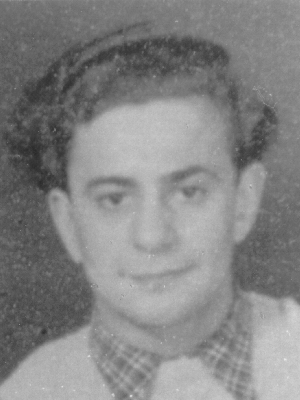
Chaim Blachman, the son of a hardware store owner, grew up in Lodz, Poland. He had three brothers and a sister, and they lived comfortably in a non-Jewish area of the city. A large city, and home to over 233,000 Jews, Lodz was a major textile center. Its diverse population of Jews, Poles, and Germans had lived together in relative peace for years. Chaim worked in his father's store every day after school. He helped his father repair everything from shoes to appliances.
When the Germans occupied Lodz in September 1939, Chaim was twelve years old. Antisemitic restrictions were immediately passed. Jews were forbidden to congregate for religious services and they were forced to wear the yellow star. Curfews were imposed and radios were confiscated. In addition, Jews were barred from most professions, and all Jewish communal institutions were ordered to disband.
On February 8, 1940, all Jews were forced to live in a run-down part of the city. On May 1, 1940, the overcrowded ghetto was closed off. Living conditions were horrible. There was no heat, little food and medicine, and sanitation was inadequate. People fell dead in the street from starvation, disease, and exposure.
Still, there was an attempt to maintain normal city life. There were schools, hospitals, and a police force. Chaim was lucky to obtain a job as a page boy in a hospital.
The Nazis began rounding up the Jews of Lodz for deportation to death camps. On September 1, 1942, they raided the hospital where Chaim worked. Arrested with the sick and dying patients, Chaim was thrown into a truck and driven out of the ghetto. When the truck stopped to pick up more prisoners, Chaim slipped out and ran home. As the search intensified, it became increasingly difficult to hide and Chaim was eventually caught in a boiler room. Fourteen year-old Chaim was sent to work as a slave laborer in a German-run munitions factory in Czestochowa, about 124 miles southwest of Warsaw. Working day and night, Chaim somehow survived the brutality, disease, and lack of adequate nutrition. The factory was closed on January 16, 1945, after a typhus epidemic broke out, and Chaim was sent to a concentration camp near Munich, Germany. He was liberated in April 1945.

